Nama J2 vs Nama J3: which juicer should you choose?
We've tested Nama's little and large juicers, squeezing a helpful comparison on performance, price, capacity and design
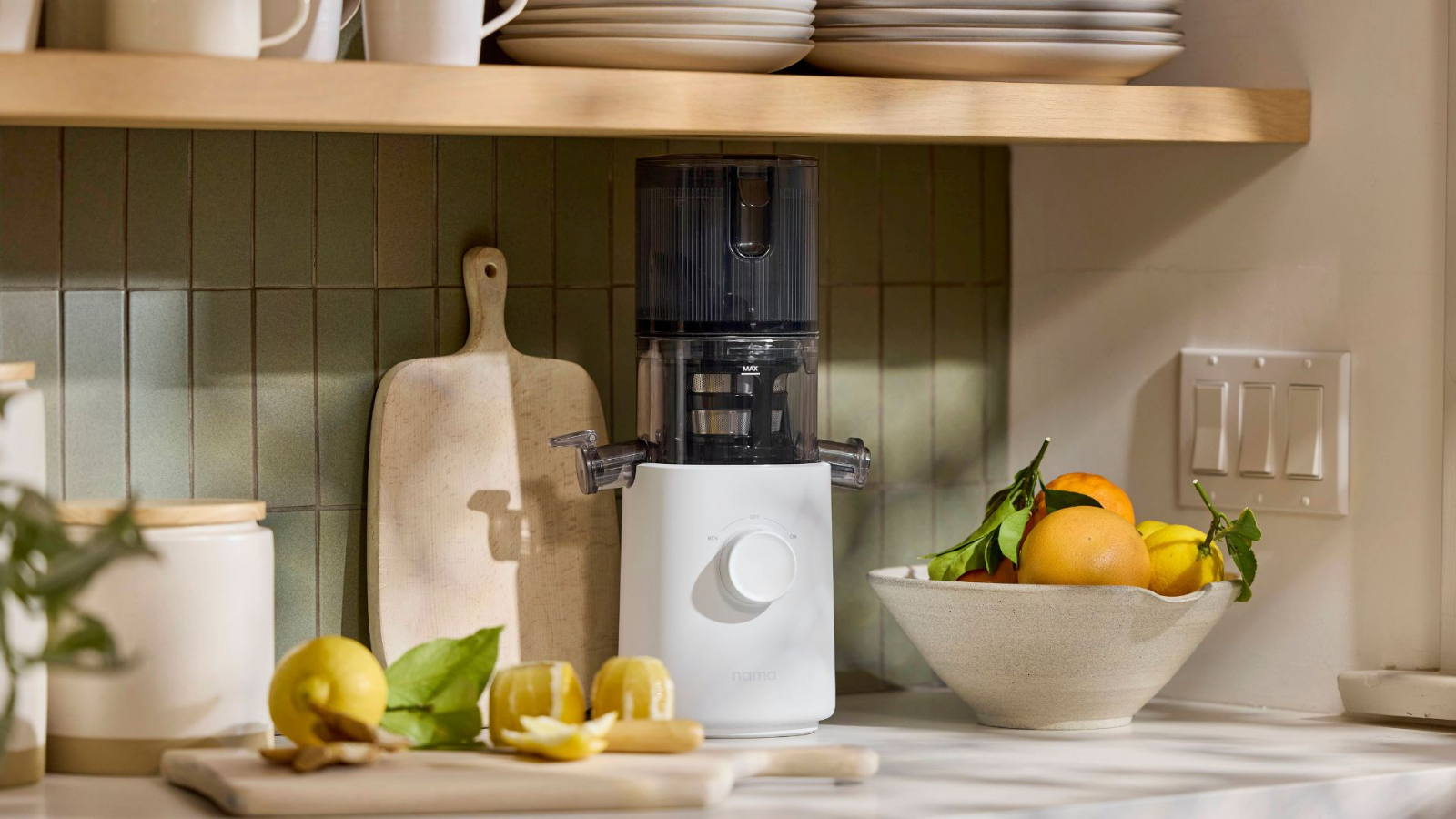

At H&G, we have a team of experts who have spent years testing the best juicers money can buy. Back in 2018, Nama revolutionized the market with their groundbreaking J1 Juicer. Since then, the brand has topped the charts with its sleek J2 model. Our testers were obsessed with the modern design and perfect juice results, but there was just one snag: it was very big.
Now, Nama has released a smaller J3 model. Naturally, we've tested both juicers, crunched the numbers and sipped the results in a taste test – in order to offer you an accurate comparison.
The Nama J3 juicer might be perfectly petite, but the difference between the Nama J2 and J3 goes well beyond size.
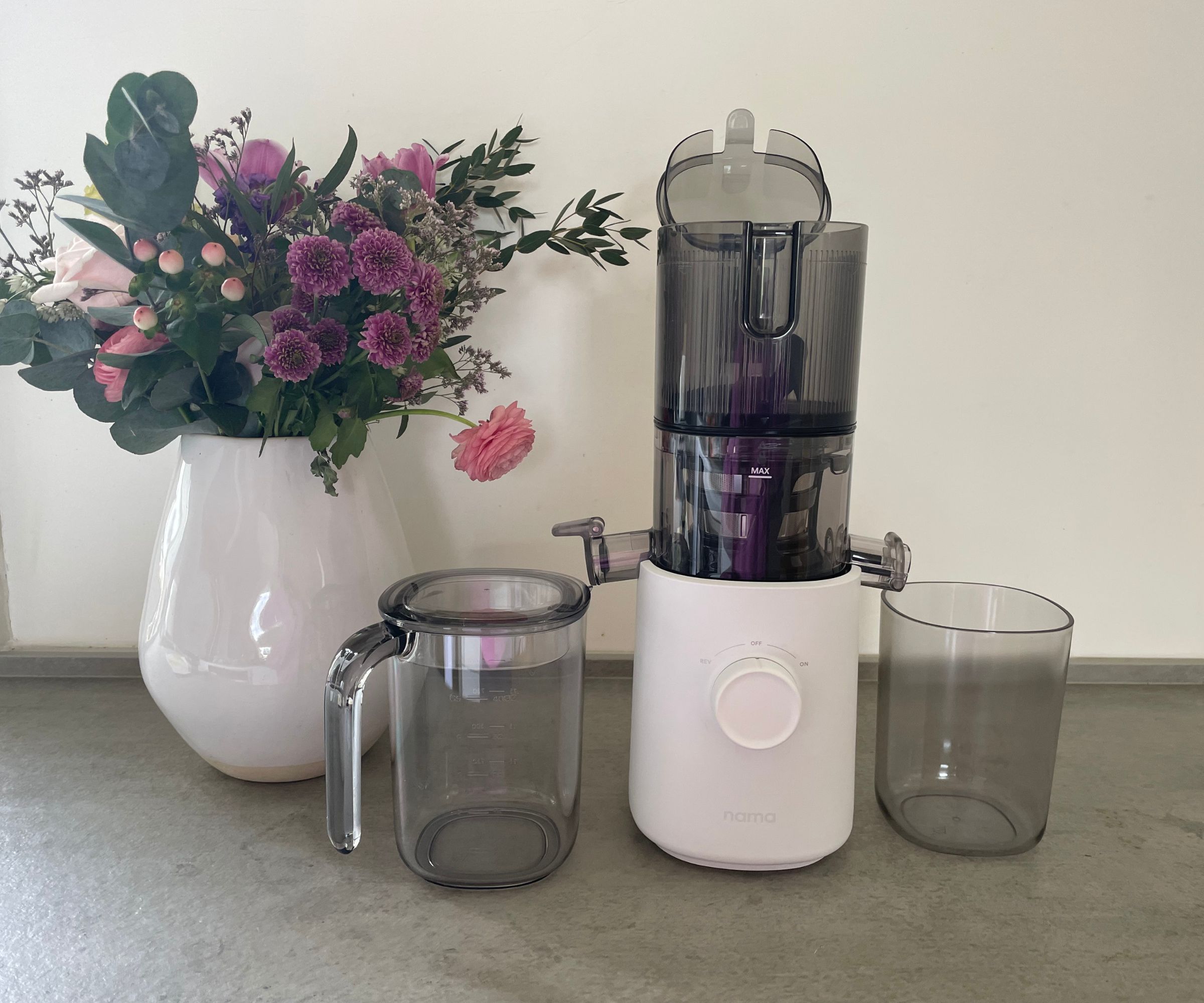
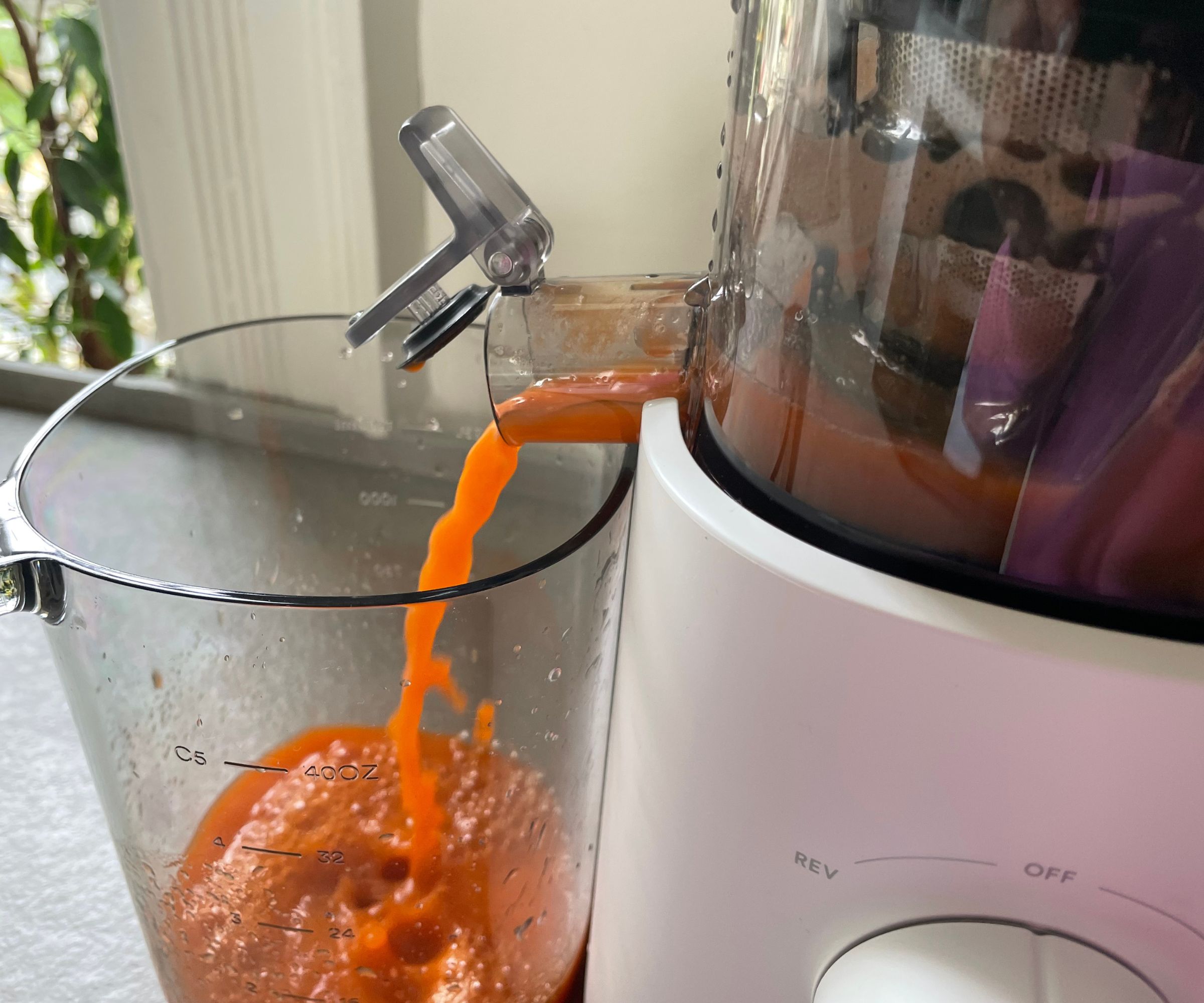
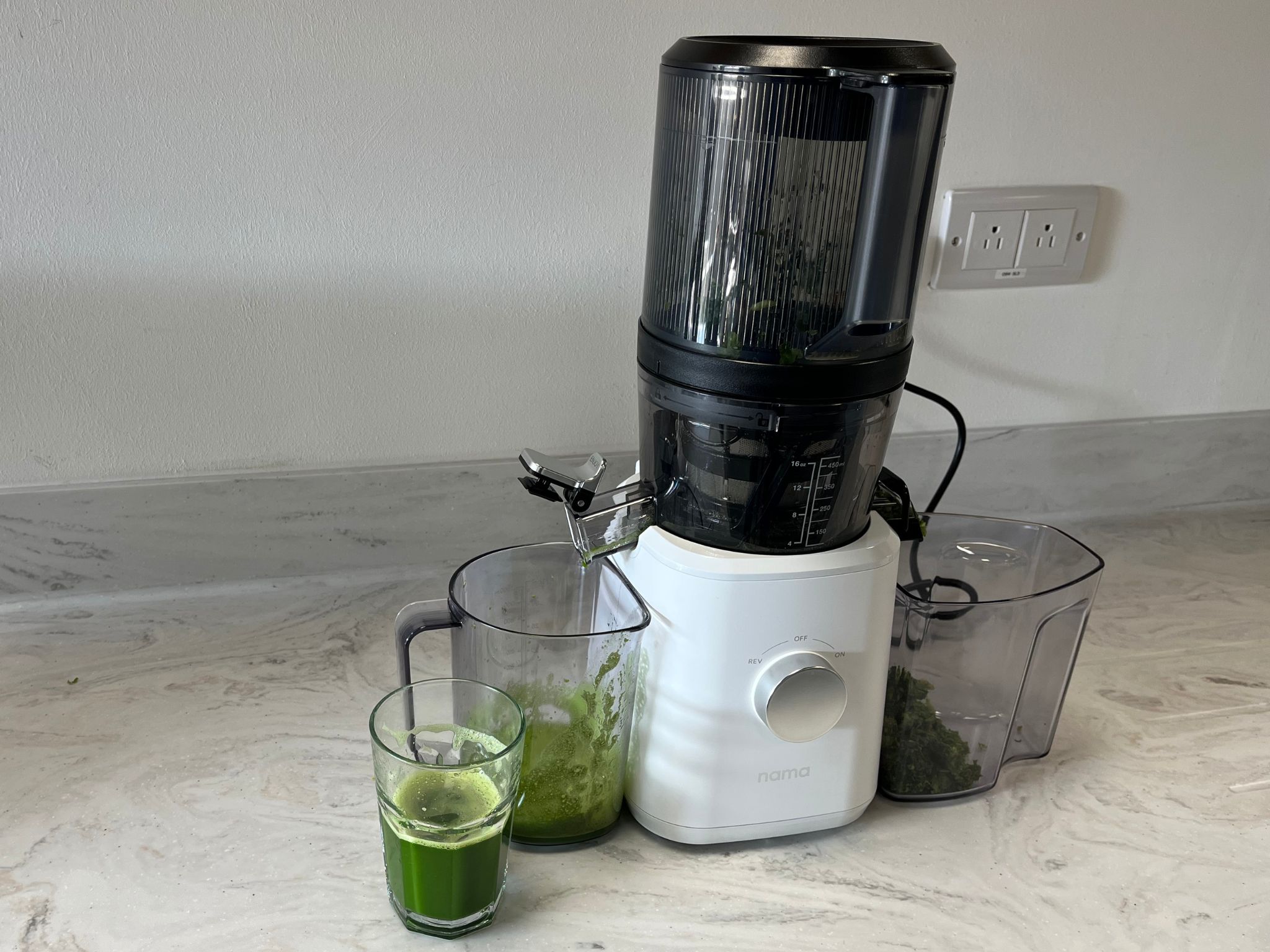
Nama J2 vs Nama J3
Nama's J2 juicer has been praised worldwide for delivering crisp, clear juice. In our tests, it made a wonderfully refreshing green juice. Our tester, Alex, declared the fresh orange juice 'the best he'd ever tasted.'
The single biggest issue with this machine is the size. The Nama J2 Juicer is almost eighteen inches tall. That's almost exactly the average gap between a kitchen cabinet and countertop. If you're working in a smaller kitchen without much clearance above your surfaces, this isn't going to work.
The beauty of the Nama J3 is that it's almost identical to the Nama J2, just shrunk down. It was designed to be portable – you can pack it in the car for traveling and store it away in a kitchen cabinet if you don't juice every day.
The functions are as effortless as the J3. You can load fruit and vegetables in, twist the dial, and it'll churn the raw ingredients into a crisp juice. We tested this with a ton of fibrous ginger, hard almonds, crisp apples and raw carrots – it all flew through. We got clear juice from one spout and a small amount of pulp from the other. On the tasting, we found the juice quality on par with the J2.
Design expertise in your inbox – from inspiring decorating ideas and beautiful celebrity homes to practical gardening advice and shopping round-ups.
So, at first glance, it seems like size is the only difference between the Nama J2 and J3. However, we're experts in this game, so we have spotted a few subtle differences – including limits on extra features and color options – that you might like to consider before making your choice.
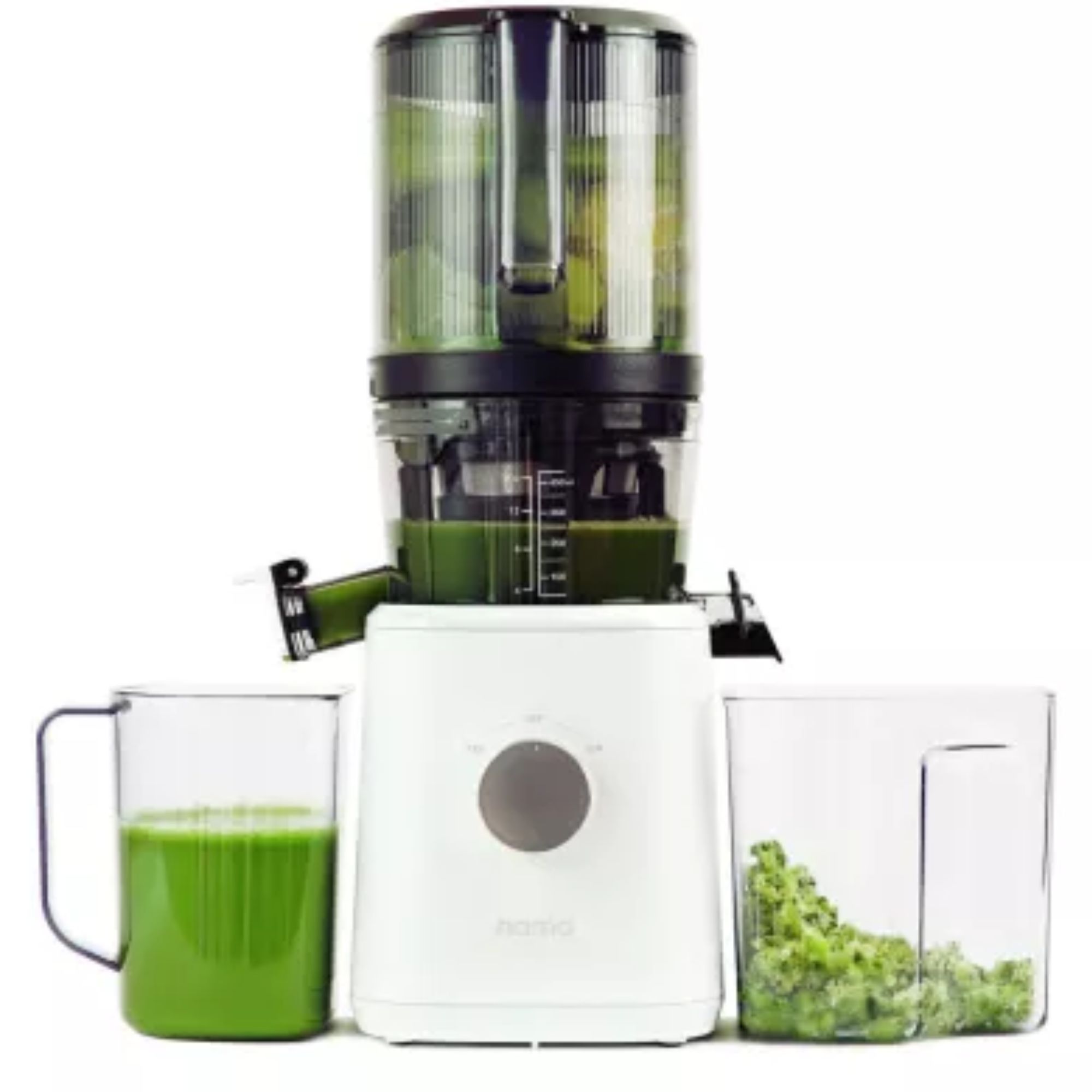
Best for large kitchens, families, and keen juicers
For big-batch juicing, the Nama J2 is your best bet. All you need to do is load ingredients into the pitcher and press 'start'. Plus, it can make sorbets and healthy 'nice cream' too.
You can find more details in our full Nama J2 Juicer review.
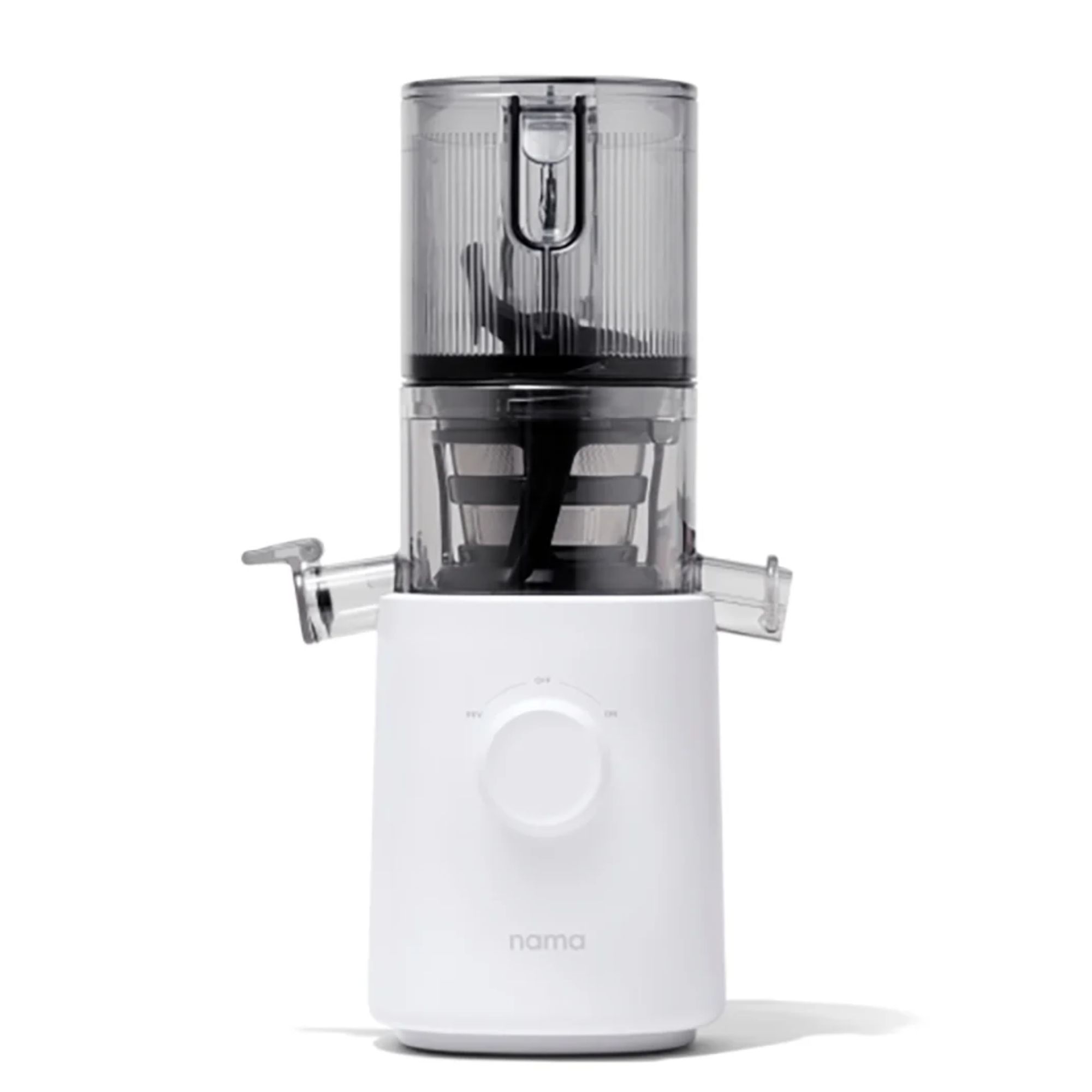
Best for small kitchens, couples, and vacation homes
If you're working in a smaller kitchen, you'll love this short, slim, and lightweight juicer. Perfect for individuals or couples. You might not appreciate the rather outsized price tag, though.
You can find more details in our full Nama J3 Juicer review
The quick list
If you're in a rush to grab the best juicer for your needs, I've created a quick comparison list below. You'll find more detailed insight from our expert testers further down the page.
| Header Cell - Column 0 | Nama J2 | Nama J3 | Header Cell - Column 3 |
|---|---|---|---|
| Size | 17.7 inches tall | 15.4 inches tall | Row 0 - Cell 3 |
| Portability | Definitely not portable | Portable | Row 1 - Cell 3 |
| Hopper Capacity | 70 ounces | 34 ounces | Row 2 - Cell 3 |
| Juice Yield | 16-32 ounces | 8-16 ounces | Row 3 - Cell 3 |
| Power | 200W | 150W | Row 4 - Cell 3 |
| Extra features | Sorbet, ice cream and nut milk | Nut milk | Row 5 - Cell 3 |
| Compatible Accessories | Citrus attachment, sorbet attachment, extra large hopper, large pitcher set, pulp strainer | Large pitcher set, pulp strainer | Row 6 - Cell 3 |
| Best suited to | Black, White or Gray | White or Black | Row 7 - Cell 3 |
| Price | $550 | $450 | Row 8 - Cell 3 |
| Row 9 - Cell 1 | Row 9 - Cell 2 | Row 9 - Cell 3 |
Size
The most obvious difference between Nama's J2 and J3 Juicers is size and weight. At 17.7 inches tall and 15.5 lbs, the J2 is best suited for spacious kitchens, where it can stay fixed all year round.
I live in a city apartment with my partner – we don't have space for an enormous juice installation. At 15.4 inches tall, Nama's J3 is ideal for a small kitchen. It fits on the countertop and if you need to clear space for meal prep, it can neatly pack away into a cupboard.
Weighing under 10 pounds, Nama say that the J3 model is ideal for taking on a road trip, to your vacation home, or even on an international flight. So you can reap the benefits of a daily juicing routine, wherever you are.
However, the J3 is still a full-size blender with a plug socket. If you're looking for truly 'on-the-go' nutrition, you might prefer a cordless travel blender, which you can carry in a gym bag or place on your office desk.
Hopper Capacity & Juice Yield
'Hopper capacity' refers to the maximum amount of fruits, veggies, or nuts that the hopper can hold at one time. The J2 Juicer's hopper is designed to accommodate larger batches of produce, specifically up to 70 ounces. This large capacity allows you to place a whole bunch of fruit and veg into the hopper and get on with something else – no need for frequent refilling. When the juicing is done, you'll have around 600ml juice in the container. Ideal for families, hosting healthy brunches, or storing extra bottles of juice in the refrigerator.
In contrast, the J3 Juicer's hopper capacity is half the size at 34 ounces. This can happily make around 400ml juice, which is enough for two people. In fact, I think that's ideal for morning green juices or ginger shots. You could make bigger batches if you really wanted, but you'd have to put some manual work in – standing at the juicer, frequently refilling the hopper and replacing the containers.
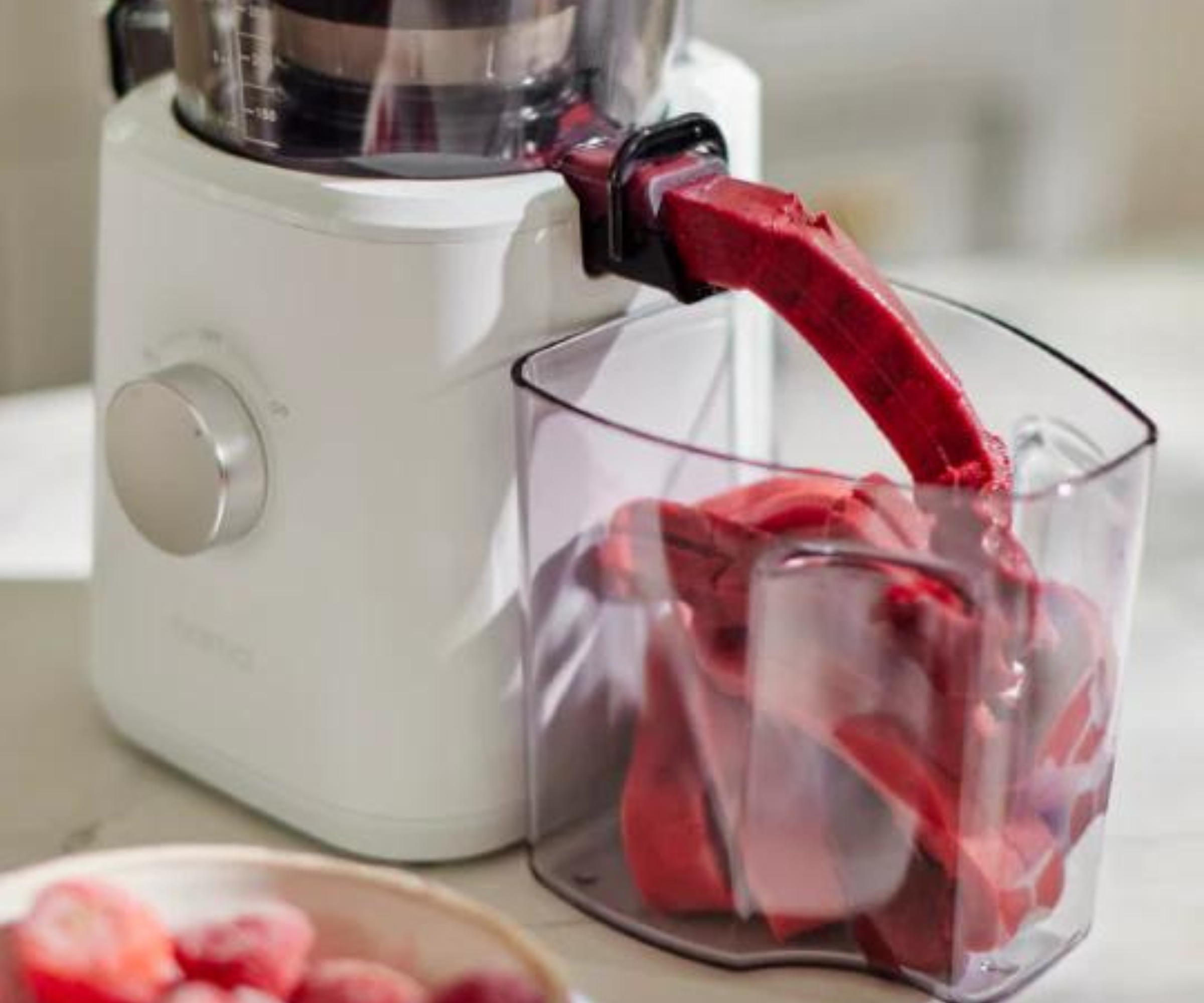
Extra functions
All Nama's accessories are compatible with the J2 model. You can add a citrus attachment, which eliminates the need for peeling and creates quick, delicious fresh orange juice. Simply halve your oranges, add them to the blade, and juice will consistently pour out – it’s designed so you don’t need to remove any pulp.
We haven't tested it yet, but the sorbet attachment is also very enticing. If you want a sweet summer treat, it can turn frozen bananas into 'nice cream' – very popular with little ones. I’ve been inspired by the flavor combinations from customer reviews online, which include everything from watermelon sorbet to strawberry chocolate.
Neither of these attachments fit the smaller J3 model, so if you love fresh orange juice or want to make sorbet, it's a no-brainer. You need to choose the J2.
Design
The Nama J2 and J3 are equally sleek and stylish. If you like moody grey and want to match the rest of your kitchen appliances, the J2 is available in grey, black and white. T
he Nama J3 is only available in black and white, so the options are slightly more limited.

Cleaning
Cleaning juicers is never an easy process, but Nama does its best to make it straightforward. In both models, the parts separate easily and each kit includes a useful cleaning brush.
When it comes to comparison, the J3 is quicker and easier to clean, simply because it's smaller. However, Nama's juicing components are not dishwasher-safe. If you really dislike hand washing, you might want to consider another brand altogether.
Our tester Laura has also created a very helpful guide to deep-cleaning your juicing kit, too.
Price
At $450 RRP, the Nama J3 is $100 cheaper than its larger counterpart. If you're looking for a world-class juicer that's compact and portable, this cost saving is an added benefit. However, if you're not obsessed with juicing, it's still a hefty price tag.
If you're still deliberating between models, have the space for a large juicer and you're leaning toward the J3 simply because it's cheaper – you might want to think again. For just $100 more, you could have one of the best juicers and sorbet makers in the world proudly displayed on your countertop. You could even create an at-home juice bar to complement your investment.
Alternatives
As much as we love Nama, we wouldn't blame you for considering a cheaper model. Plus, if you're after a cordless option for healthy drinks on-go, Nama's models won't be for you. Here's our expert pick of the top alternative brands.
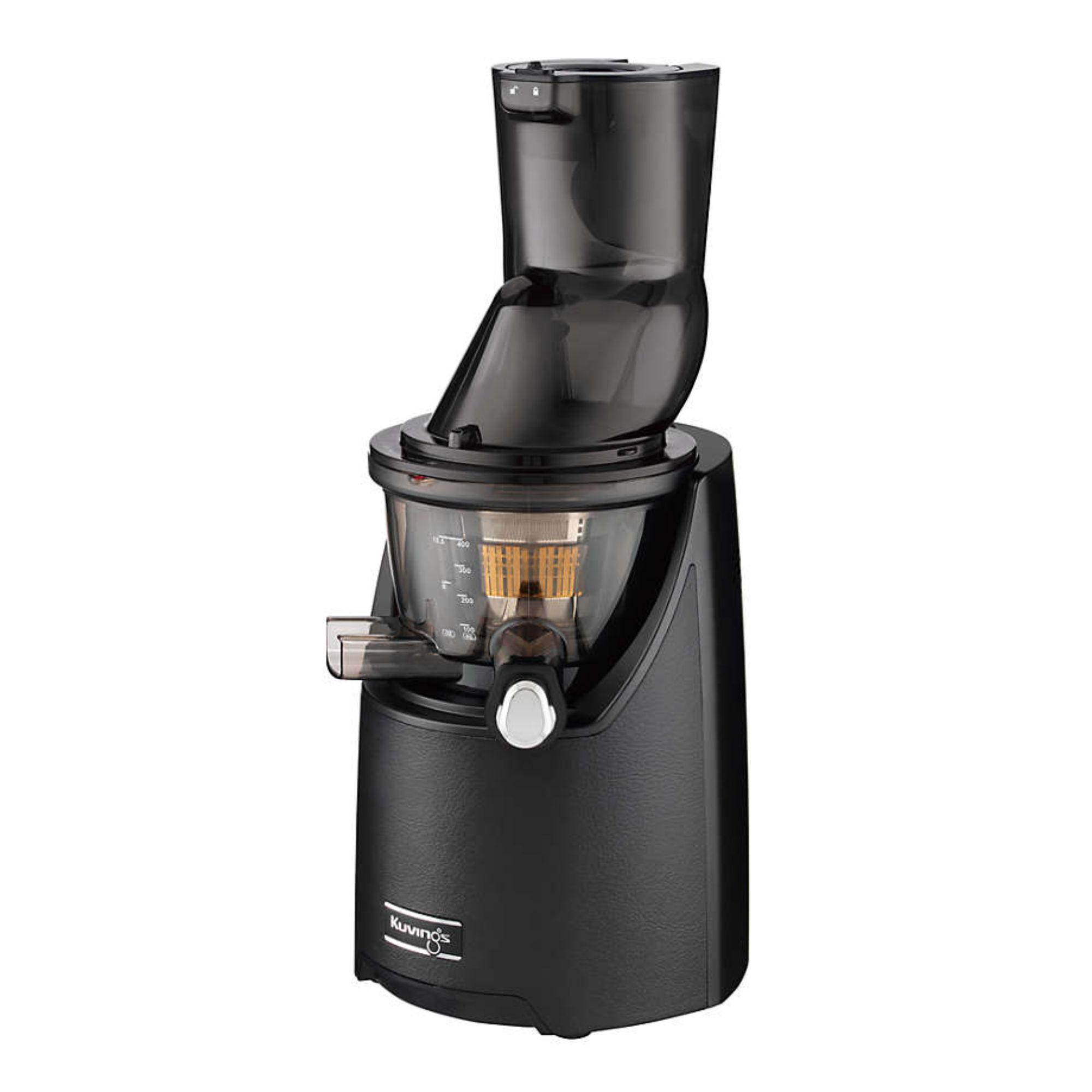
A match for the Nama J2. This rival is $50 cheaper and voted our best cold press juicer of 2024. Actually, it's a smoothie blender and sorbet maker too.
You can find more details in our Kuvings Whole Slow Juicer EVO820 review.
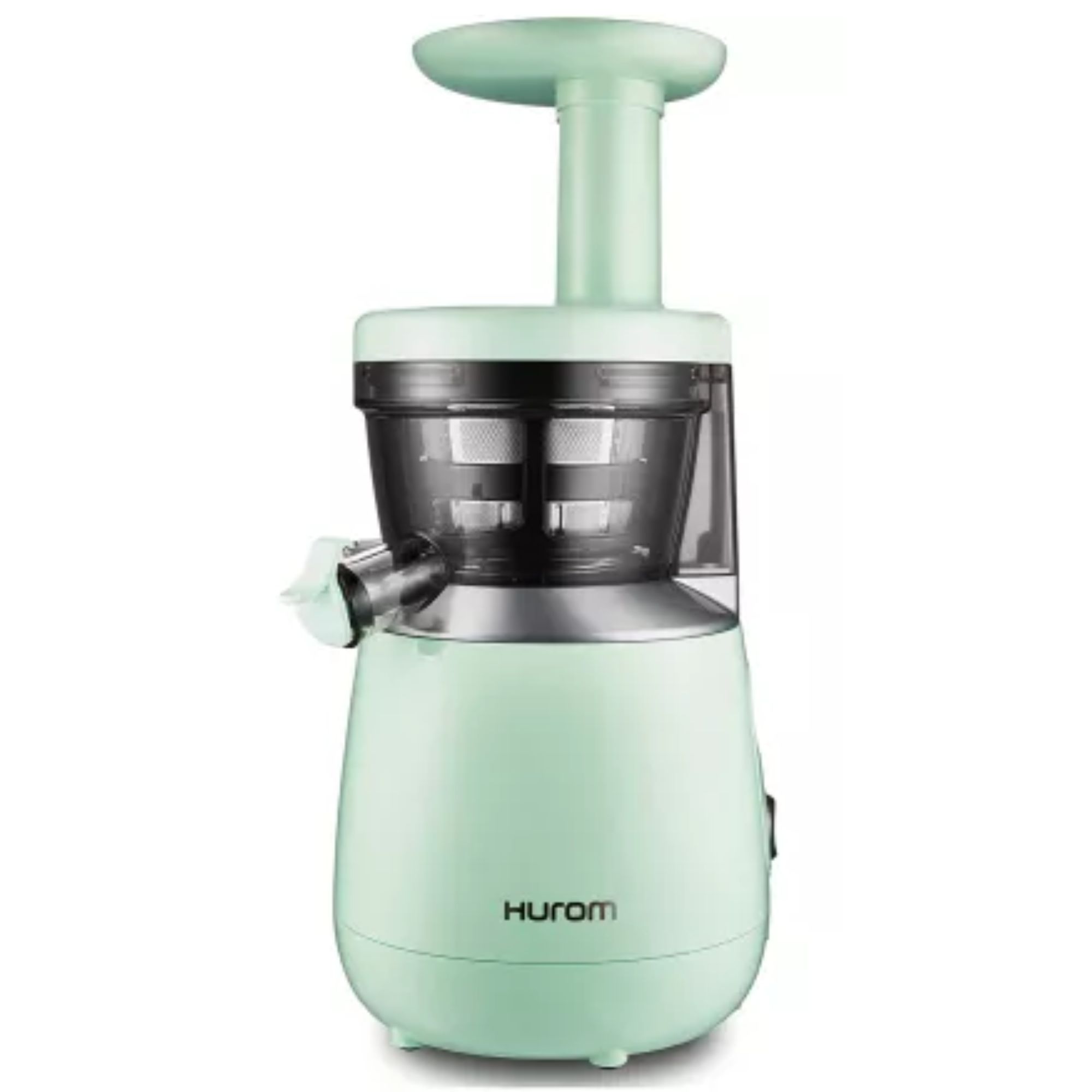
This compact Hurom Juicer isn't quite as sleek as its competitor Nama J3. Still, it was the runner-up for our best cold press juicer on the entire market. It's cute, colorful, and versatile enough to make sorbet.
You can find more details in our Hurom HP Slow Juicer review
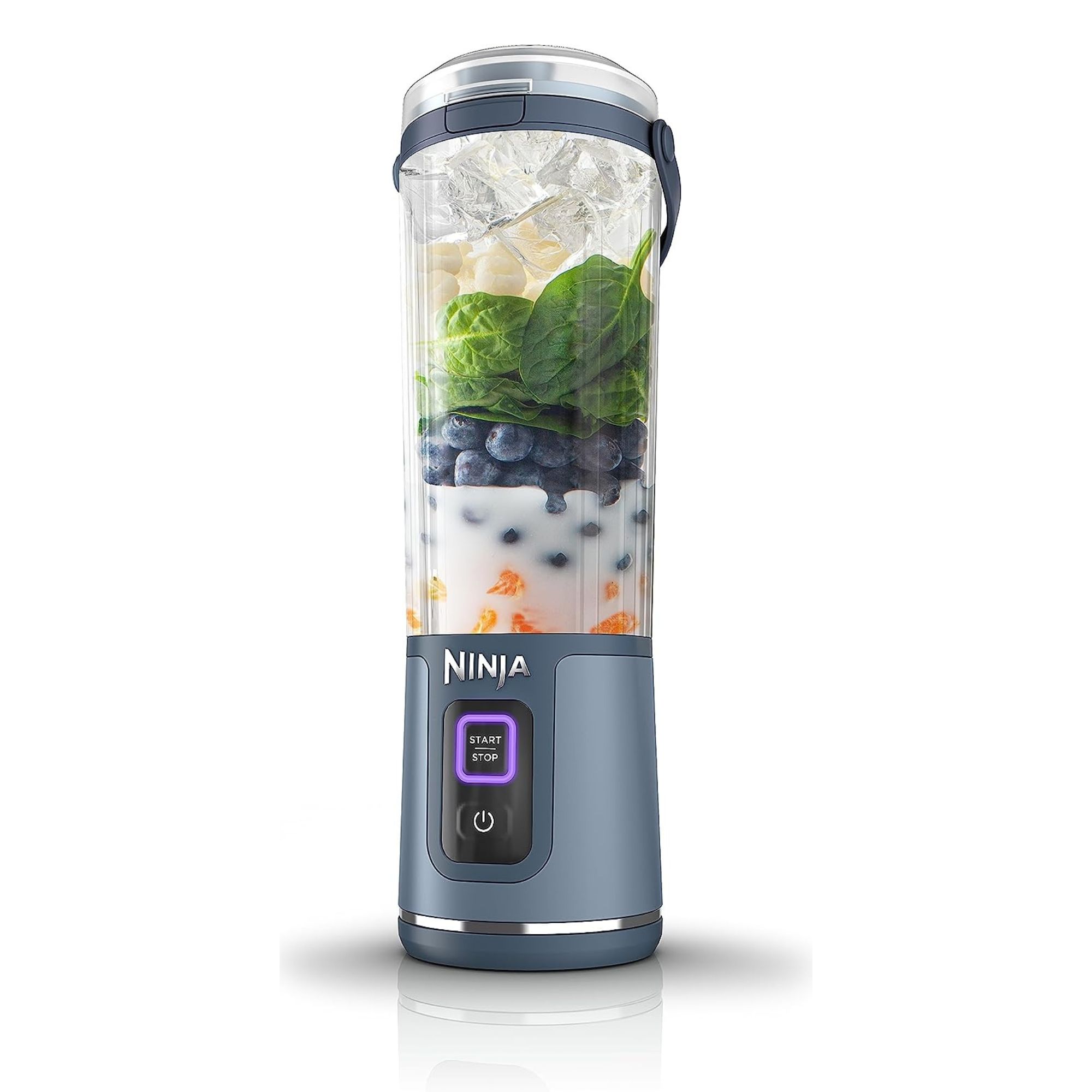
Not technically a juicer, the cordless Ninja Blast is great for blending smoothies, shakes and frozen drinks on the go. It blasts through frozen fruit and leafy greens. If you're looking for a healthy travel companion, this is a good one.
You can find more details in our Ninja Blast Portable Blender review.
FAQS
What's the difference between a juicer and a blender?
Juicers work to extract the juice from celery, apples and ginger turning them into hydrating drinks and leaving behind the flesh and pulp. The leftover pulp can either be used in other recipes or discarded. Blenders, on the other hand, keep all the ingredients intact, making them ideal for smoothies where you want to consume every part of the fruit or vegetable, and create a fiber-rich, creamy drink.
What is a cold press juicer?
A cold press crushes produce to extract juice without using heat. It's also known as a slow juicer or a masticating juicer. A cold press juicer rotates at a lower RPM than a fast juicer, mimicking the motion of hand-juicing to produce flavorful and fiber-packed juice.
Are blenders cheaper than juicers?
Blenders are cheaper than juicers. This is because juicers not only blitz up fruits and vegetables, they also remove the pulp, which makes them more advanced machines. If you’re on a budget and want fresh and healthy drinks, opt for a blender. You’ll find that the best portable blenders are often the least expensive.

Lydia is the Kitchen Appliances Editor for Homes & Gardens, testing everything from air fryers and mixers to juicers and coffee machines. She trained in Culinary Arts at Leiths School of Food & Wine and previously served as the Recipe Editor for Mindful Chef.